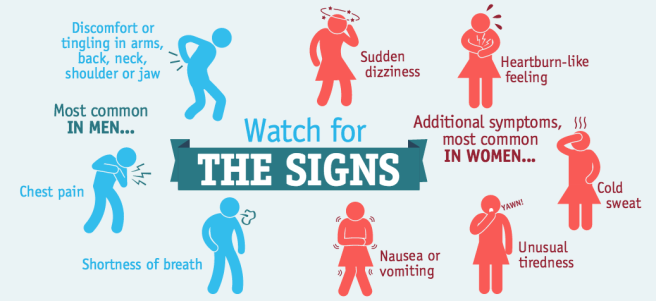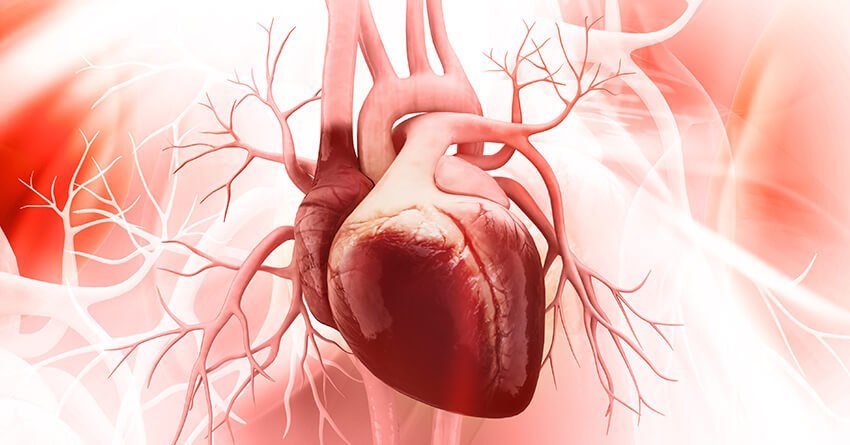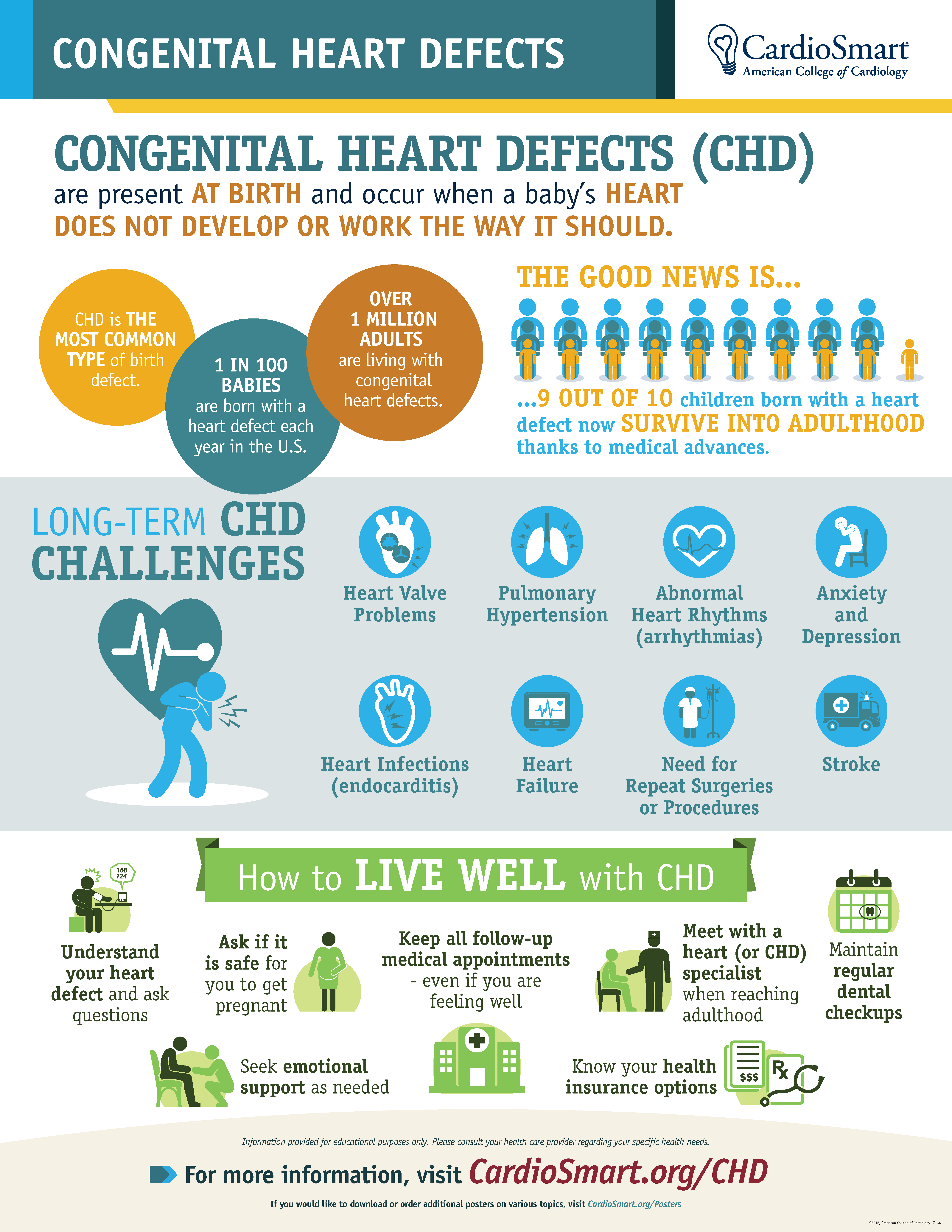Heart problem symptoms in adults include chest pain, shortness of breath, pain in the neck, jaw, or back, numbness or coldness in the legs or arms, and fatigue. These symptoms can indicate various heart conditions such as angina, heart attack, heart failure, or congenital heart disease.
It is important to pay attention to these signs and seek medical attention if experiencing any of them, as early detection and treatment can help prevent serious complications. Regular check-ups and maintaining a healthy lifestyle with exercise and a balanced diet are also essential for heart health.

Credit: www.sujyotheartclinic.com
Common Symptoms Of Heart Problems
Chest Pain
Chest pain is one of the most common symptoms of heart problems in adults. It can vary in intensity and may feel like a dull ache or a sharp stabbing sensation. Chest pain associated with heart problems is often located in the center or left side of the chest and may radiate to the neck, jaw, arm, or back. It may also be triggered by physical activity or emotional stress. If you experience chest pain, it is important to seek medical attention immediately as it could be a sign of a heart attack or angina.
Shortness Of Breath
Shortness of breath or difficulty breathing is another common symptom of heart problems. It may feel like you are unable to get enough air or as if you are running out of breath. This symptom can occur at rest or during physical activity and may be accompanied by chest pain or discomfort. If you find yourself becoming short of breath without any obvious reason, it is important to consult with a healthcare professional to determine the underlying cause.
Irregular Heartbeat
An irregular heartbeat, also known as arrhythmia, is a common symptom of heart problems. It may feel like your heart is skipping beats, racing, fluttering, or pounding. Some people may also experience a sensation of their heartbeats being too fast or too slow. This symptom can be intermittent or persistent and may be accompanied by other symptoms such as lightheadedness or dizziness. If you notice any changes in your heart rhythm, it is important to get evaluated by a healthcare professional.

Credit: www.yashodahospitals.com
Detecting Heart Problems
Early detection of heart problems is crucial for timely treatment and prevention of further complications. Knowing the symptoms to look out for and conducting the necessary checks and tests at home can help you identify potential heart issues. In this section, we will explore the different ways you can detect heart problems.
At-home Checks
Performing simple checks at home can give you valuable insights into your heart health. Here are some at-home checks you can easily do:
- Blood Pressure Tests: Monitoring your blood pressure regularly using a digital blood pressure monitor can help you identify high blood pressure, a common risk factor for heart disease.
- Checking Your Pulse: You can measure your resting heart rate by counting the number of beats per minute. An irregular or rapid pulse may indicate an underlying heart condition.
- Symptom Tracking: Keep a record of any symptoms you experience, such as chest pain, shortness of breath, or lightheadedness. This information can be helpful for your doctor in diagnosing heart problems.
Tests For Diagnosis
In addition to at-home checks, your doctor may recommend specific tests to diagnose heart problems. These tests provide a more comprehensive evaluation of your heart health. Some common tests include:
- Electrocardiogram (ECG/EKG): This test records the electrical activity of your heart to detect irregularities or abnormalities.
- Echocardiogram: Using sound waves, this test creates detailed images of your heart's structure and function.
- Stress Test: This test measures your heart's response to physical activity, usually on a treadmill or stationary bike, to assess its performance under stress.
- Cardiac Catheterization: In this procedure, a thin tube is inserted into a blood vessel to obtain detailed images of your heart and check for blockages.
It's important to consult with your healthcare provider to determine which tests are appropriate for your specific situation.
Identifying Heart Failure
Identifying heart failure in adults involves recognizing symptoms such as chest pain, shortness of breath, dizziness, and irregular heartbeats. These signs may indicate stages C and D of the disease, requiring prompt evaluation of overall heart function and severity of symptoms.
Home-based assessments, like monitoring blood pressure and pulse, can also offer insights into heart health.
Stages Of Heart Failure
Heart failure is a progressive condition that can worsen over time. To understand the severity and progression of heart failure, researchers have classified the disease into four stages: A, B, C, and D. These stages help healthcare professionals assess a patient's overall heart function and the severity of their symptoms. Let's take a closer look at each stage:
- Stage A: In this stage, individuals are at high risk of developing heart failure but do not yet have any structural heart problems or symptoms. Prevention and management of risk factors are crucial at this stage.
- Stage B: At this point, individuals may have structural heart issues, such as thickened ventricle walls or valve abnormalities, but still do not experience any symptoms. Medical intervention and lifestyle modifications are essential to prevent the progression of heart failure in this stage.
- Stage C: In stage C, individuals have developed symptoms related to heart failure. These symptoms can include shortness of breath, fatigue, swelling in the legs or ankles, and reduced exercise tolerance. Prompt medical treatment and lifestyle changes are necessary to manage and slow down the disease's progression.
- Stage D: The final stage of heart failure, stage D, indicates advanced heart failure that is resistant to medical treatment. Individuals in this stage experience severe symptoms even at rest and may require advanced interventions such as heart transplantation or mechanical support.
Progression And Severity Of Symptoms
As heart failure progresses from stage A to stage D, the severity of symptoms typically increases. In the early stages, individuals may have no symptoms or experience mild symptoms such as occasional fatigue or shortness of breath during physical activity.
However, as the disease advances, the symptoms become more frequent and intense. Individuals may experience persistent fatigue, shortness of breath even at rest, rapid or irregular heartbeat, coughing or wheezing, and swelling in the legs, ankles, or feet. These symptoms can significantly impact daily life and reduce the quality of life.
It's important to note that the progression and severity of symptoms can vary from person to person. Regular check-ups with a healthcare professional and proper management of the disease through medication, lifestyle modifications, and rehabilitation programs can help control the symptoms and improve the overall prognosis.
In conclusion, identifying the stages of heart failure and understanding the progression and severity of symptoms is crucial for timely intervention and effective management. It allows healthcare professionals to tailor treatment plans to individual needs and improve the quality of life for individuals living with heart failure.
Specific Symptoms And Causes
Understanding the specific symptoms and causes of heart problems in adults is crucial for early detection and timely intervention. By recognizing the signs and understanding the underlying causes, individuals can take proactive steps toward safeguarding their heart health. In this section, we will explore the symptoms in women and signs of minor heart blockage.
Symptoms In Women
Heart disease doesn't discriminate based on gender. However, symptoms in women can sometimes differ from those experienced by men. It is important for women to be aware of these gender-specific symptoms to ensure timely diagnosis and treatment.
Here are some symptoms that women should be mindful of:
- Chest pain or discomfort: Women may experience squeezing or aching pain in the chest that can spread to the arms, jaw, or neck.
- Shortness of breath: Feeling breathless even during mild physical activity or at rest can be a sign of heart problems.
- Fatigue: Unexplained fatigue or exhaustion, even after getting adequate rest, should not be ignored.
- Upper body discomfort: Women may experience pain or discomfort in the back, shoulders, and upper abdomen.
- Nausea or indigestion: Heart problems can manifest as symptoms similar to common stomach issues.
- Lightheadedness or dizziness: Feeling dizzy, faint, or lightheaded can be indicative of an underlying heart condition.
- Cold sweats: Profuse sweating, especially accompanied by other symptoms, should not be overlooked.
While these symptoms may also occur in men, it is essential for women to be particularly vigilant due to the potential differences in how symptoms manifest.
Signs Of Minor Heart Blockage
Minor heart blockage, often referred to as coronary artery disease (CAD), is a common condition where the heart's blood vessels become narrowed or blocked. Recognizing the signs of this condition is crucial for early intervention and preventing further damage.
Here are some signs that may indicate minor heart blockage:
| Signs of Minor Heart Blockage | Indications |
|---|---|
| Chest pain or discomfort | Episodes of tightness, pressure, or pain in the chest, often triggered by physical activity or emotional stress. |
| Shortness of breath | Difficulty breathing or catching one's breath, especially during exertion. |
| Fatigue | Feeling excessively tired or lacking energy, even after ample rest. |
| Irregular heartbeat | Fluttering or pounding sensations in the chest, known as palpitations. |
| Dizziness or lightheadedness | Feeling unsteady or dizzy, often accompanied by a sensation of spinning. |
If you experience any of these signs or suspect you may have a minor heart blockage, it is crucial to seek medical attention promptly. Remember, early detection can greatly improve the outcome and quality of life.

Credit: www.cardiosmart.org
Frequently Asked Questions For Heart Problem Symptoms In Adults
How Do You Know If Your Heart Is Ok?
To check if your heart is okay, look for symptoms like chest pain, shortness of breath, and dizziness. You can also monitor your pulse and blood pressure, and consider seeking medical tests for a thorough evaluation. Regular exercise and a healthy diet can also support heart health.
What Are The First Signs Of Heart Disease?
The first signs of heart disease include chest pain, shortness of breath, pain in the neck, jaw, throat, upper belly area or back, and pain, numbness, weakness or coldness in the legs or arms if the blood vessels in those areas are narrowed.
What Are The 4 Stages Of Heart Failure?
Heart failure is classified into four stages - A, B, C, and D - to measure overall heart function and symptom severity. Stages C and D represent advanced heart failure. Symptoms may include chest pain, shortness of breath, fatigue, and swelling.
Seek medical attention if you experience these signs.
How Can I Check My Heart Health At Home?
To check your heart health at home, you can check your blood pressure and pulse, as well as monitor any symptoms such as chest pain, shortness of breath, or dizziness. It's also important to maintain a healthy lifestyle with regular exercise and a balanced diet.
Conclusion
Recognizing the symptoms of heart problems in adults is crucial for early detection and intervention. Common signs such as chest pain, shortness of breath, pain in the neck or jaw, and coldness or weakness in the limbs should never be ignored.
It is important to monitor your heart health regularly and seek medical attention if you experience any concerning symptoms. Taking proactive steps to maintain a healthy heart can significantly reduce the risk of developing severe heart conditions.






0 Comments